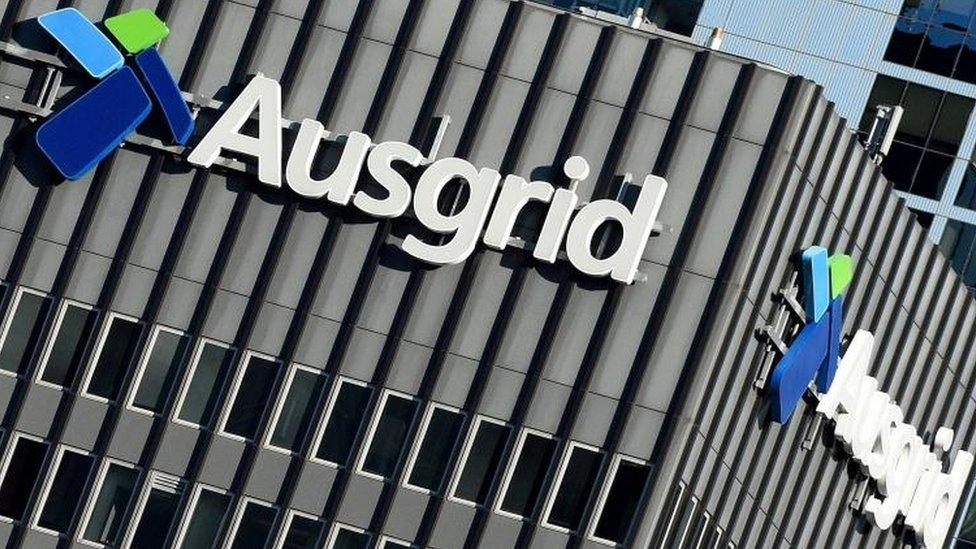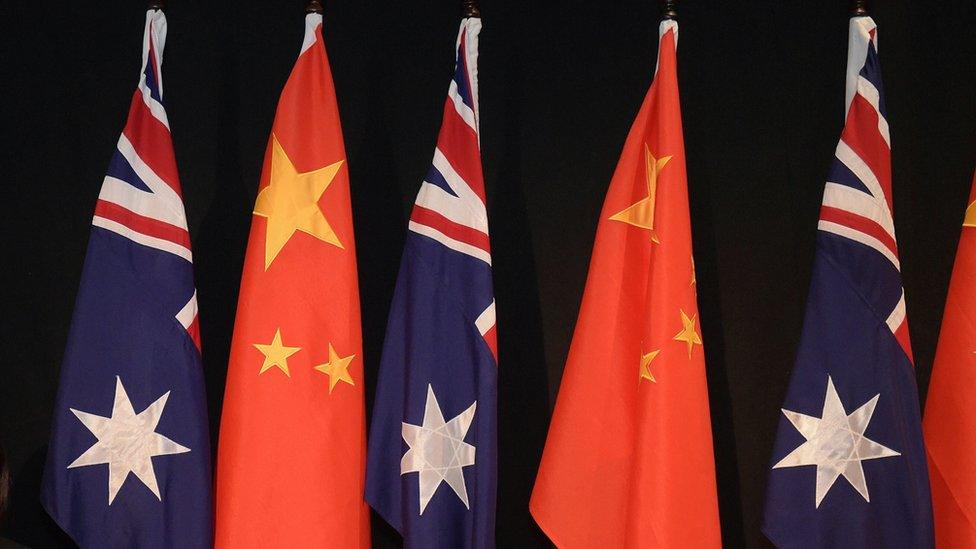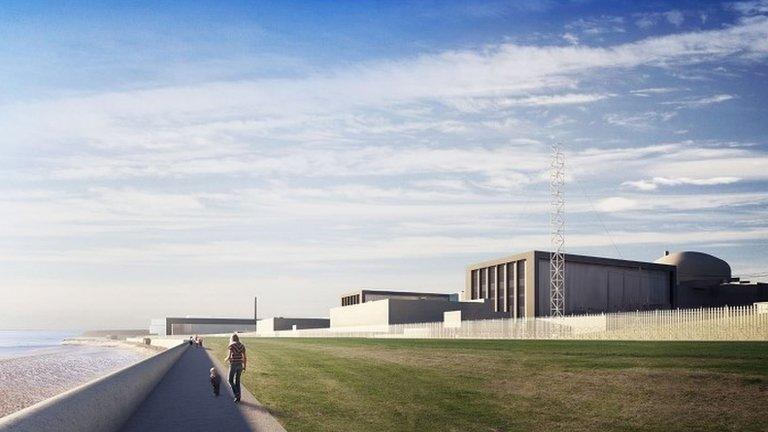Australia blocks Ausgrid energy grid sale to Chinese companies
- Published

Australia has blocked the sale of Ausgrid, the country's biggest energy grid, to two Chinese companies over security concerns.
Australian Treasurer Scott Morrison officially rejected the bid by the two firms to buy a 50.4% stake in Ausgrid.
The sale had already been put on hold last week, a decision which had drawn much criticism from China.
On Friday, Mr Morrison said selling the grid to foreign investors would be against the national interest.
"After due consideration of responses from bidders to my preliminary view of 11 August 2016, I have decided that the acquisition by foreign investors under the current proposed structure of the lease of 50.4% of Ausgrid, the New South Wales electricity distribution network, would be contrary to the national interest," he said in a statement.
"This is consistent with the recommendation from the Foreign Investment Review Board."
Blocking the sale is expected to widen the rift between the two countries, with China accusing Australia of bowing to protectionist sentiment.
After the sale had been put on hold last week, China Commerce Ministry spokesman Shen Danyang had said: "This kind of decision is protectionist and seriously impacts the willingness of Chinese companies to invest in Australia."


Analysis: Karishma Vaswani, Asia business correspondent
This rejection by the Australians will only serve to convince the Chinese that they are being messed about.
China is Australia's biggest trading partner, and this will almost certainly strain ties between the two.
But the decision should hardly come as a surprise as Mr Morrison had initially raised concerns about the Chinese investment. He said very clearly that he didn't believe it was in the national interest, and the two companies needed to address security concerns.
Now he says those concerns haven't been addressed, and that's why he's shut the deal down.
That seems - on the surface at least - perfectly logical. But the Chinese, who have already expressed their dissatisfaction with the way they are being treated, are unlikely to see this as more protectionism from Australia.

Privatisation plan
Earlier this year, Australia blocked the sale of Kidman & Co - the world's biggest cattle farm - to a Chinese investor.
However, Mr Morrison said that the plans to privatise Ausgrid remained in place, aimed at helping the New South Wales state government to raise capital for local infrastructure projects.
Australia's decision comes in the wake of the UK government's decision, under new Prime Minister Theresa May, to review the building of a nuclear plant partly funded by China.
"In their quest for global reach, Chinese firms have been acquiring significant stakes in international energy companies especially in emerging and developing countries," said Prof Kamel Mellahi of Warwick Business School.
"But in the future firms may ask themselves the question whether the deal would go through just because the investor is from China. That said, such decisions will have little or no effects on Chinese investment in non-critical sectors."
China's ambassador to the UK warned that the delay to approving the plant had brought the two countries to a "crucial historical juncture".
- Published11 August 2016
- Published9 August 2016
